What is the relationship between playful inquiry and open systems?
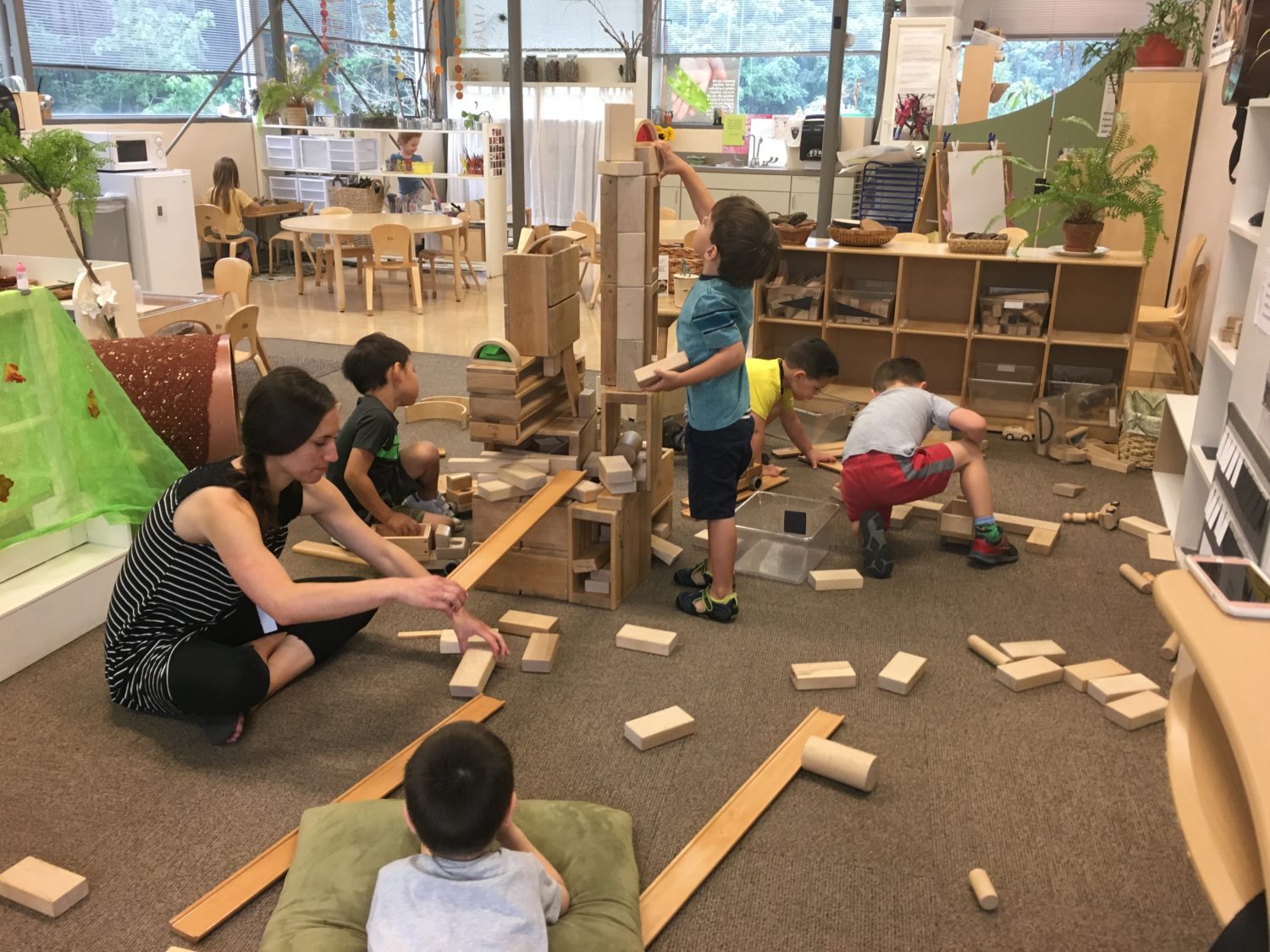
At last week’s back-to-school night, I was asked to speak briefly about Playful Inquiry and open systems. I’m sharing what I said — for families who weren’t able to attend, for educators who read the blog to consider, and for those who were able to attend to revisit. I look forward to reading your responses!
At Opal School, Playful Inquiry is the core approach that the children and their teachers use to learn. Open systems are the explicit and implicit structures that keep that learning happening day after day.
Research shows that play is the best strategy for humans to make sense of the world. Play memories are really sticky because of the quality of living and learning that happens when we’re deeply engaged in play experiences. Playing with materials, or a new friend, or the natural world, offers us a chance to test theories, synthesize new information, make predictions and stronger connections, take risks, and practice being resilient.
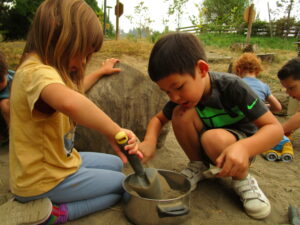
Take a moment to reflect and travel back to when you were a child. Think about a time when you were completely lost — and completely alive! — in play. What did it look like, sound like and feel like? Now zoom back to the present moment. What’s happening in your heart and in your mind as you remember playing as a child?
At Opal School, we hope to create the conditions for this optimal state of learning: When the mind is relaxed yet challenged, fully engaged and primed for learning. We invite children to learn about the things they encounter with the kind of curiosity, joy and attitude of freedom that we remember from our happiest moments of childhood.
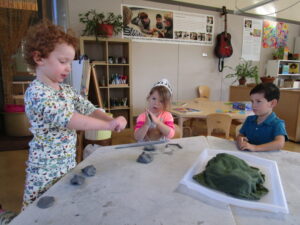
For the last few years, we’ve used the phrase playful inquiry to describe our work. We’ve found it to be a term that resonates with us and many of the educators who visit our school, too. Last year, we sat together, reflected on our experiences with children, and tried to define what we do each day. We wrote that,
Playful Inquiry is an approach to learning alive in a community that courageously and collaboratively relies on the unique gifts of childhood to question what it means to be a citizen world-maker in the midst of uncertainty.
Children make sense of the world using natural learning strategies such as using their senses to gather information, collaborating on ideas with others, and telling stories to build relationships. They enter the world wired to use these tools and driven to construct an understanding of everything around them. Since Playful Inquiry experiences are rich in sensory detail and intellectually rigorous, they support the development of strong, complex neural pathways.
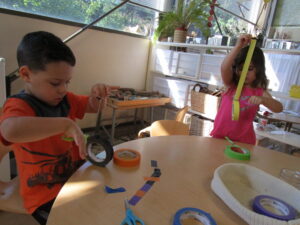
What kinds of system does Playful Inquiry depend on? We call systems that are flexible enough to withstand change — and that welcome uncertainty — open systems. Playful inquiry relies on an open system, and it relies on the relationships, collaboration and interdependence of everyone in the community.
An open system is a group of patterns and relationships based on a set of values and guiding principles rather than a strictly codified set of rules. It keeps people working together relationally rather than bureaucratically.
![]()
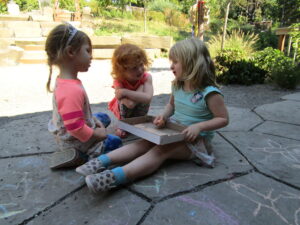
We know from science that nothing in the universe exists in isolation, and this is evident in an open system like a school. When problems threaten an open system, it reorganizes and makes changes to remain vital. In this way, open systems are very resilient. By contrast, when a closed system fails, it breaks down or disintegrates.
To make an open system stronger, we need to make relationships stronger. It’s our hope that everyone (children, families, teachers) finds meaningful ways to work together and play together in this rich and complex web that we call Opal School.
If you’re interested in reading more about some of these ideas, you might turn to:
- Margaret Wheatley’s, Chaos and Complexity: What can science teach?
- Our book and dvd, What About Play? The value of investing in children’s play
I’m curious to hear from you: How might we make the relationships in our school even stronger?

I had a conversation with a parent recently that reinforced how crutial our relationships with the families are. When I consider how to work toward stronger relationships in our school, I immediately think of the families and care-givers of the children. A strong school community requires trust, and a pathway to trust is connection. I wonder what ways I’m making connections with families and building trust with them? This leads me to consider my intentions and values in regards to connection, and how I can remain open and curious with each person in our community.
Trust. So true. Trust and security are so vital to take the risk into the unknown.
Makes me wonder… How do you work relationally and responsively to create conditions for transformational learning (through play) in an open system? Thanks for the article link!
This is a post to go back to again and again…to inspire and remind us of what to look for in the classroom and what conditions to strive to create. Thank you.